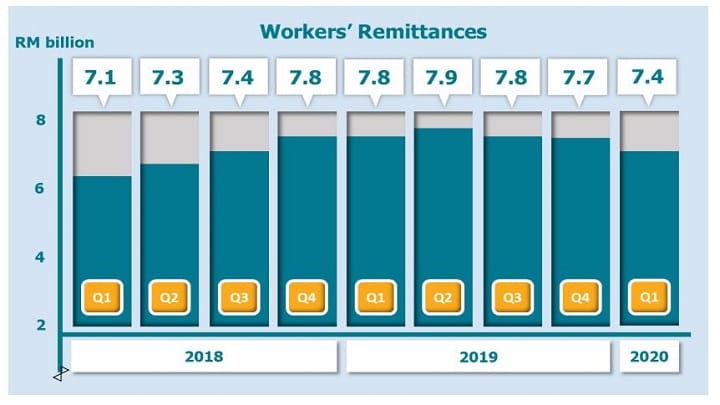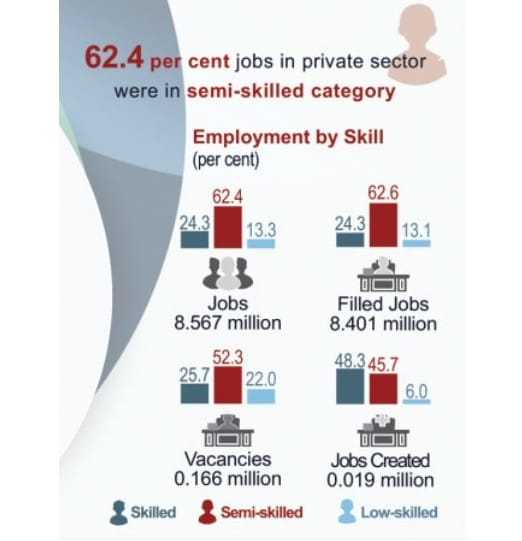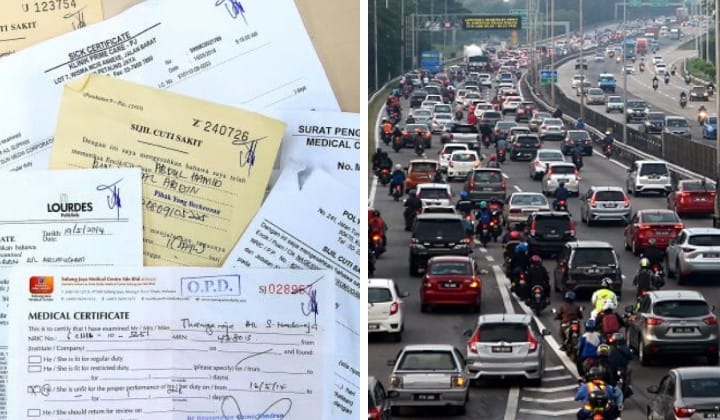Stats Dept: Increasing Reliance On Foreign Workers Over The Years Led To Suppression Of Wage Levels

Subscribe to our new Telegram channel for the latest updates on Covid-19 and other issues.
The Statistics Department (DOSM) states that years of high reliance of foreign labour has resulted in the suppression of wage levels in the countries, especially when citizens are replaced by non-citizen employees.
DOSM noted in their Malaysian Economic Statistics Review Vol. 1/2020 Report that outward remittances have been increasing at a rapid pace with RM31.2 billion flowing out in 2019 compared to RM29.2 billion in 2018.
Impact of labour market dependency to foreign labour is reflected through the Workers’ Remittances by foreign workers as reported in Balance of Payments (BOP) of Malaysia, whereby the share of workers’ remittances outflows accounted for more than 80% of total payments.
Malaysian Economic Statistics Review Vol. 1/2020 Report, Statistics Department.

(Credit: Statistics Department)
Concerns on Malaysia’s high reliance on foreign workers had been raised numerous times before the Covid-19 pandemic hit.
The country’s economic transition from agriculture in the 1970s to manufacturing in the 1990s, followed by services in 2000s had led to more and more foreign workers brought into Malaysia to meet these labour demands, especially in low-skilled and semi-skilled jobs.
Of the 8.5 million jobs in the first quarter of 2020 (Q1 2020) alone, only 24.3% were skilled jobs. 62.4% comprised of semi-skilled jobs while low-skilled jobs stood at 13.3%.

(Credit: Statistics Department)
According to the Malaysia Standard Classification of Occupation (MASCO) 2013, these category of skills are defined as:
- Skilled workers – Managers, Professionals, Technicians and associate professionals
- Semi-skilled workers – Clerical support workers, Service and sales workers, Skilled agricultural, forestry, livestock and fishery workers, Craft and related trade workers, Plant and machine operators and assemblers
- Low-skilled workers – Elementary occupations
However, with slowing economic growth due to the pandemic as well as the implementation of the Movement Control Order (MCO), outward remittances for Q1 2020 in Malaysia recorded RM7.4 billion, a drop from RM7.7 billion in Q4 2019.
This is most likely due to the vulnerability experienced by foreign workers when it comes to job and wage loss during the outbreak.
DOSM states that a lesson for Malaysian establishments to learn from the pandemic is shifting businesses towards high technologies and high skilled labour in order to reduce the dependency and influx of foreign workers.
Share your thoughts with us on TRP’s Facebook, Twitter, and Instagram.
She puts the pun in Punjabi. With a background in healthcare, lifestyle writing and memes, this lady's articles walk a fine line between pun-dai and pun-ishing.








